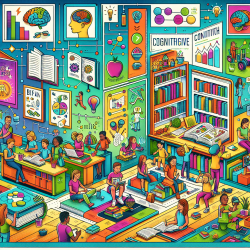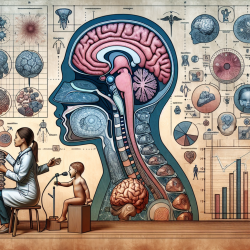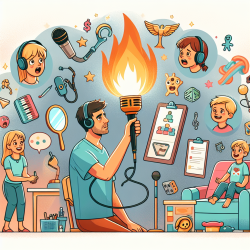The recent study "Developing and testing a cognitive bolt-on for the EQ-5D-Y (Youth)" sheds light on an important aspect of assessing Health-Related Quality of Life (HRQoL) in children and adolescents. As a practitioner, you might be wondering how this research can enhance your skills and improve your practice. Let's dive into the key findings and their practical applications.
Understanding the Cognitive Bolt-On
The EQ-5D-Y is a widely used tool to measure HRQoL in youth. However, it traditionally lacks a dimension that specifically addresses cognitive functioning. This study introduced a cognitive bolt-on, incorporating key components such as:
- School performance
- Concentration
- Memory
- Learning ability
These components were identified as crucial for evaluating cognitive functioning in children and adolescents, particularly those with chronic conditions like rheumatic disorders or type 1 diabetes mellitus.
Key Findings
The study involved 280 children and adolescents and found that the cognitive bolt-on significantly improved the explanatory power of the EQ-5D-Y. Key results included:
- Good acceptability and feasibility among participants
- Enhanced performance in capturing cognitive functioning
- Improved measurement of overall HRQoL
The inclusion of cognitive items provided a more comprehensive view of a child's well-being, especially in the context of chronic illness.
Practical Applications for Practitioners
As a practitioner, you can leverage these findings to enhance your assessment and intervention strategies:
- Incorporate Cognitive Assessments: Use the cognitive bolt-on items to get a holistic understanding of a child's HRQoL.
- Tailor Interventions: Focus on improving school performance, concentration, memory, and learning ability to positively impact overall well-being.
- Monitor Progress: Regularly assess cognitive functioning to track improvements and adjust interventions accordingly.
Encouraging Further Research
The study's results are promising, but there's always room for further exploration. Here are a few ways you can contribute:
- Conduct Longitudinal Studies: Examine the long-term impact of cognitive interventions on HRQoL.
- Explore Other Conditions: Investigate the effectiveness of the cognitive bolt-on in different health conditions.
- Collaborate: Work with researchers to refine and expand the cognitive bolt-on for broader applications.
Conclusion
Incorporating a cognitive dimension into HRQoL assessments can provide a more comprehensive understanding of a child's well-being. By using the cognitive bolt-on, you can enhance your practice and contribute to the growing body of research in this field.
To read the original research paper, please follow this link: Developing and testing a cognitive bolt-on for the EQ-5D-Y (Youth)










